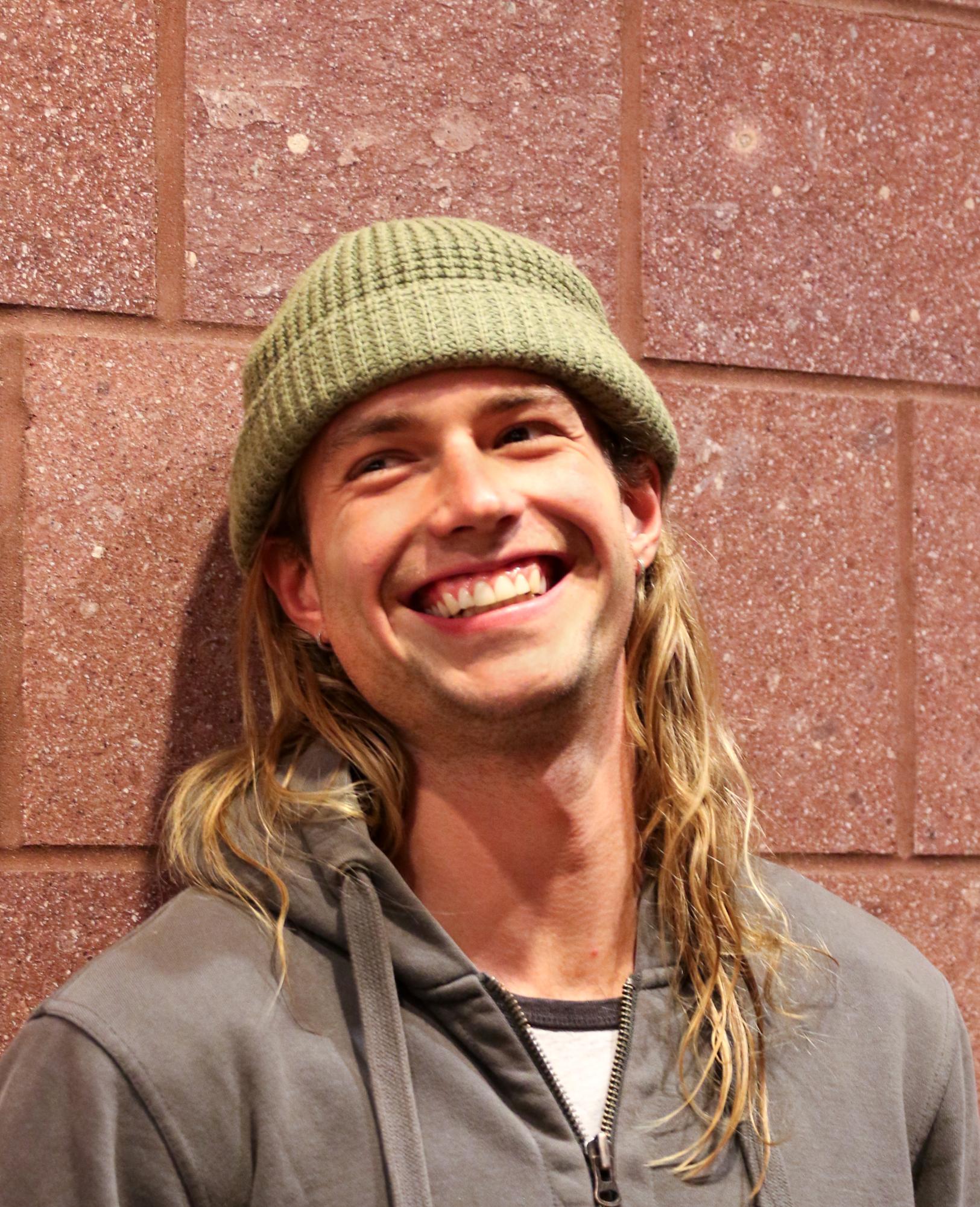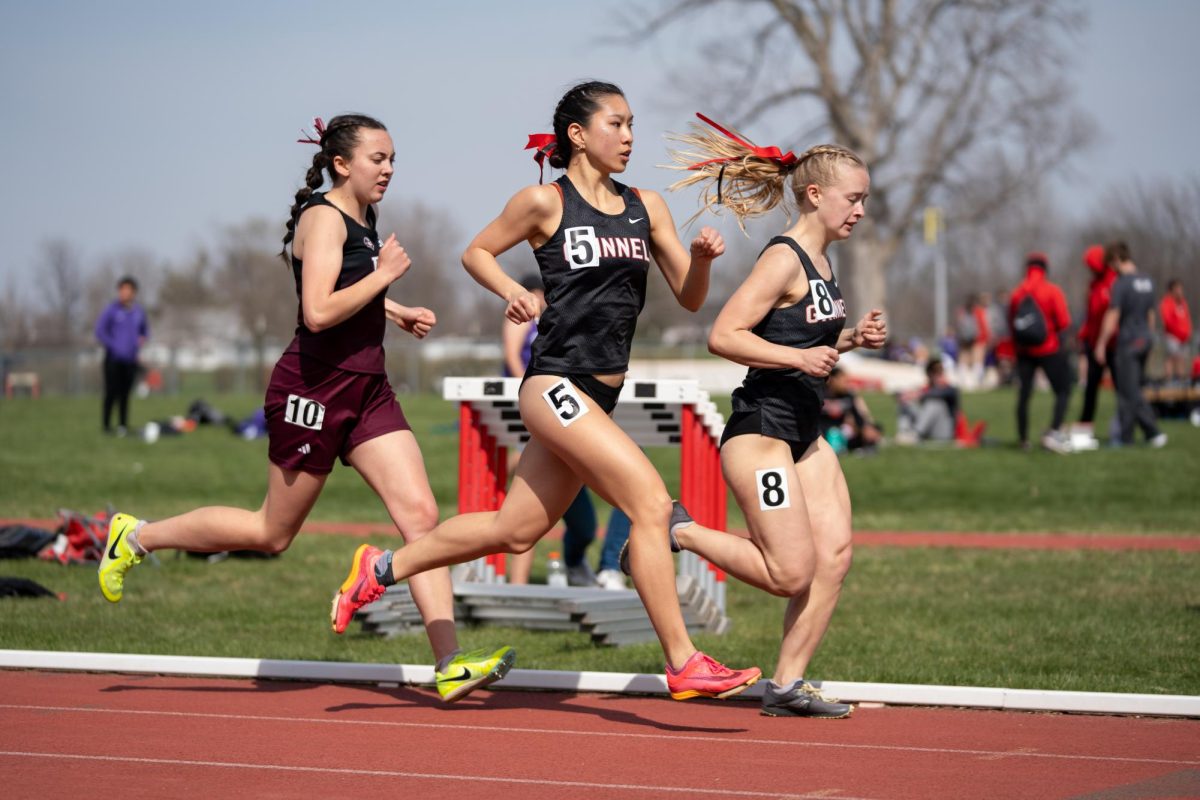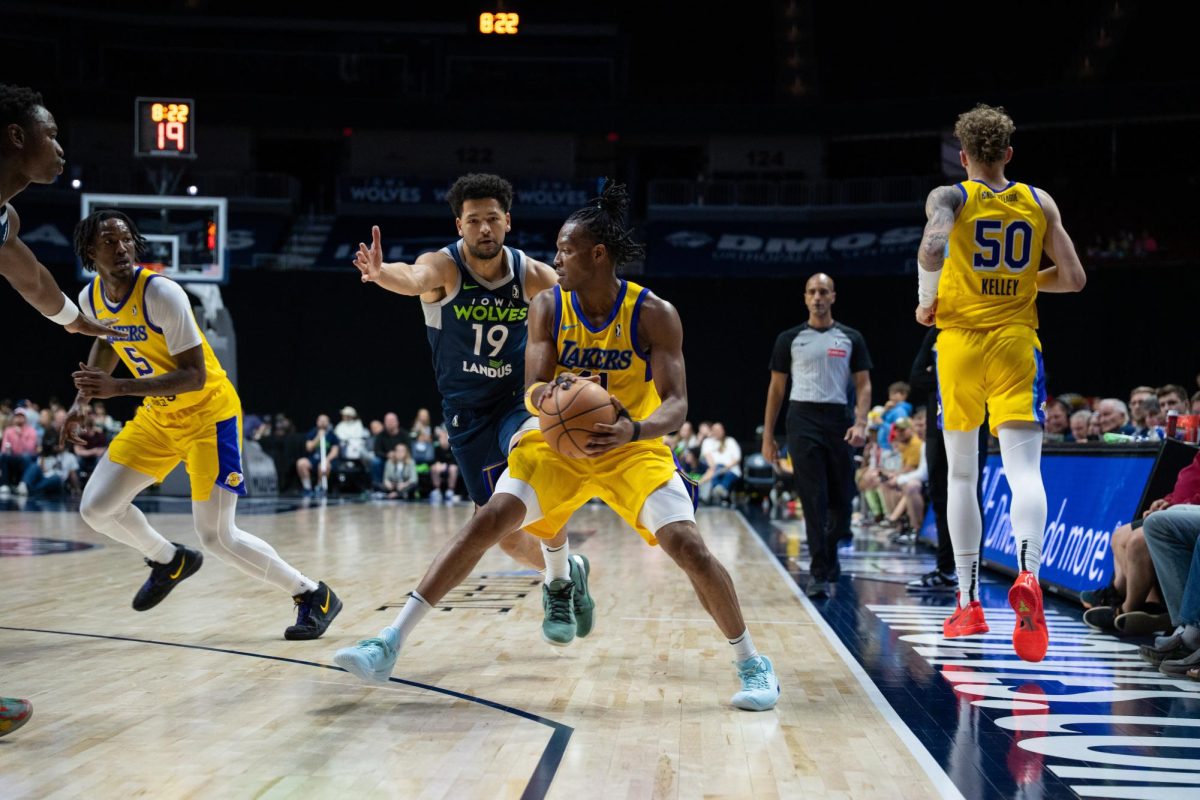For a National Collegiate Athletics Association (NCAA) Division III student-athlete, who spends a median of 28 hours per week on their sport, the decision to quit athletics can be difficult — particularly for those whose sport is a part of their identity. At Grinnell College, multiple former student-athletes cited friendships outside of their team as crucial to their decision, and a reason why other athletes may remain despite a waning enjoyment of the sport itself.
“I know a lot of people — all of their close friends are on their sports team, and I think that would make it especially hard to quit, because you would lose so much of that day to day interaction and time with people,” Sara Garcia `25 said, who ran on the track team in her first year.
Garcia said being recruited by the College may also be a factor in whether a person is more likely to make friends outside their team. “I had a big expectation that the team was gonna be kind of my entire social scene,” she said. “I think if you’re not coming to Grinnell with that expectation, that leaves a lot of doors open for you to make friends with people who aren’t on the team, and that might give you a better social support system outside of the team, and potentially make it easier to leave or quit if you don’t enjoy the sport.”

Ezra Turner `26, a former cross country and track athlete, said that it can be hard to disappoint one’s team. “A big reason why I felt comfortable leaving, and why others might not, is that I had a support system going outside of the team,” Turner said. “The team, though I loved it, wasn’t my everything at Grinnell … Had I not had that in place, I would not have quit.”
Zeke Reilly `25, who joined and quit the cross country team twice, similarly cited his friend group as a help during the process of leaving. He has also helped another teammate who was considering doing the same. “Someone from the team who I knew came up to me, and they were kind of struggling with their life on the team and being a student and balancing all of that — they were looking to essentially quit, I think,” Reilly said. “And they asked me kind of how I did it.”
Athletes who didn’t form that support system, but were forced out of their sport due to injury, are posed with an even greater challenge. Some, like Bella Arco, formerly in Grinnell’s class of `27, chose to transfer schools.
“I felt like I belonged on the team and everything, but then I wasn’t able to actually play,” said Arco, who played basketball but faced an injury early in her freshman season. “I was definitely a little depressed because of that. I think not feeling like I was fully on the team kind of permeated into the whole school feeling so I didn’t necessarily feel like I belonged at the school, just because I didn’t feel like I really belonged on the team at that point.” Arco currently attends the University of Minnesota, where she plays basketball recreationally, but is not on the official school team.
Meezan Hamzavi, formerly `27, found herself in a similar situation after tearing her ACL in the middle of her basketball season. “I think playing a sport at Grinnell is a lot of fun, but sometimes it can be hard, because if you decide to go to a school for your sport and you lose your sport, it kind of puts you in a situation where you’re like, well, what am I doing?” Hamzavi said. “Is it worth it for me to be here?”
Hamzavi, who is now on the pre-medical track at the University of Michigan said she chose to attend Grinnell to play basketball. When she faced an injury, she said the opportunities she gave up in return — such as doing research or working in an office — were “a really big sacrifice I couldn’t really justify as much anymore.”
“I do think that I made the right decision for me in this moment,” Hamzavi said.
Other reasons that factor into a student-athlete’s decision to quit may include a large time commitment or dissatisfaction with the sport. Grinnell College does not currently track information about the number of student-athletes who leave their sport or transfer to a different school, nor the reasoning behind their decision, according to Ellen de Graffenreid, vice president for communications and marketing. In an email to The S&B, de Graffenreid wrote that there is an ongoing project to track this information in the future, although the data will not be released publicly due to Family Educational Rights and Privacy Act (FERPA) regulations.
“There’s a cultural aspect of why people would stay or leave, like a team aspect, and also just a scheduling thing, like the amount of time it takes,” Eli Brotman `25 said, who ran cross country and track during his first two years at Grinnell.

Athletes who cited time commitment as their primary reason for leaving, such as Alex Stein `25, said it is difficult to balance multiple responsibilities as a varsity athlete. “I think that’s the biggest thing that’s been really nice is not having to go to practice for two hours,” said Stein, who was on the basketball team for two years.
“I didn’t have the time to do anything other than go to practice and study and go to class, and I wanted to be able to explore other interests and participate in other activities on campus,” Garcia said.
Both Stein and Garcia have found ways to still be involved in athletics outside of playing on an official college team. Stein is the president of Student-Athletes Leading Social Change (SALSC), and Garcia is the captain of the Grinneleanor Roosevelts, the women’s ultimate frisbee club team.
Stein connected the large time commitment required to the fact that basketball was a large part of his personal identity — a sentiment others shared. “I’ve been playing competitive basketball since fourth grade, and I was like, just stepping away is super challenging,” Stein said.
“I could either double down and stick with this thing I had known for a long time, or explore other aspects of myself,” said Reilly. “I kind of was feeling like I needed to do that.”
Chris Zhou `27, who quit the swim team at the end of his first season but recently rejoined, said there is no incentive for athletes to stay if they no longer enjoy their sport. “It’s not like we’re getting scholarships,” Zhou said. “If you take away that enjoyment, what else do you have left?”







